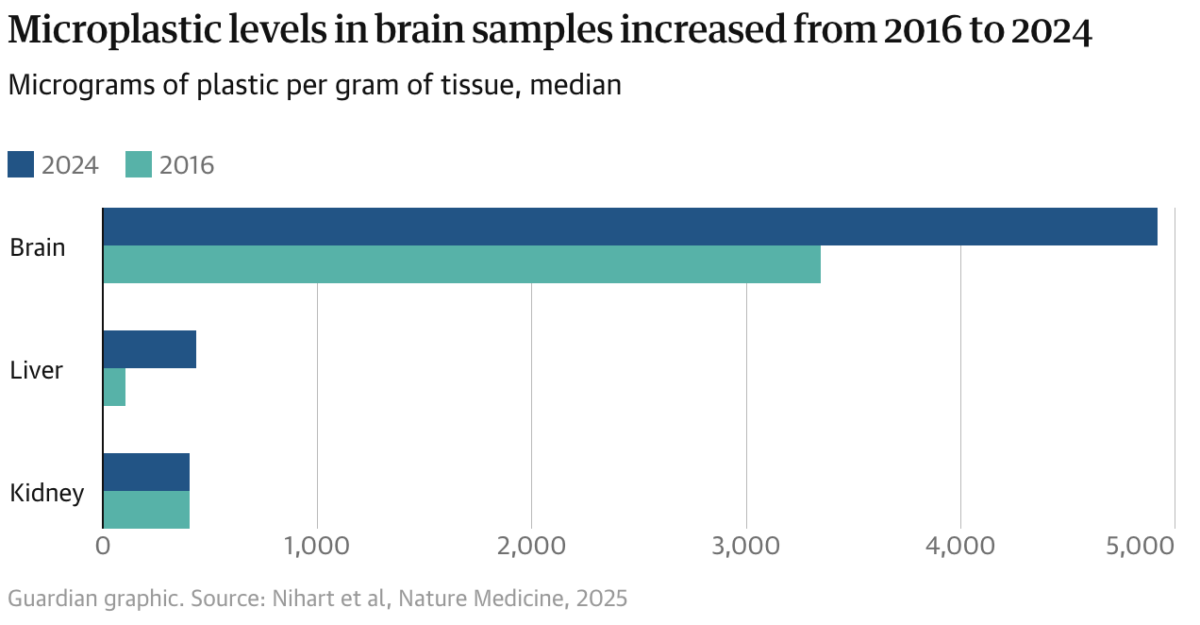
The human body is widely contaminated by microplastics. They have also been found in blood, semen, breast milk, placentas and bone marrow. The impact on human health is largely unknown, but they have been linked to strokes and heart attacks.
The new research, published in the journal Nature Medicine, analysed samples of brain, liver and kidney tissues from 28 people who died in 2016 and 24 who died in 2024 in New Mexico. Microplastic concentration was much higher in the brain tissue. It was also higher in brain and liver samples from 2024, compared with those from 2016.
The scientists extended the analysis with brain tissue samples from people who had died between 1997 and 2013 on the US east coast. The data showed an increasing trend in microplastic contamination of brains from 1997 to 2024.
The most common plastic found was polyethylene, which is used in plastic bags and food and drink packaging. It made up 75% of the total plastic on average. The particles in the brain were mostly nanoscale shards and flakes of plastic. The plastic concentrations in the organs were not influenced by the age of the person at death, or the cause of death, their sex or their ethnicity.
A study published on Thursday found tiny plastic pollution to be significantly higher in placentas from premature births. Another recent analysis found that microplastics can block blood vessels in the brains of mice, causing neurological damage, but noted that human capillaries are much larger.